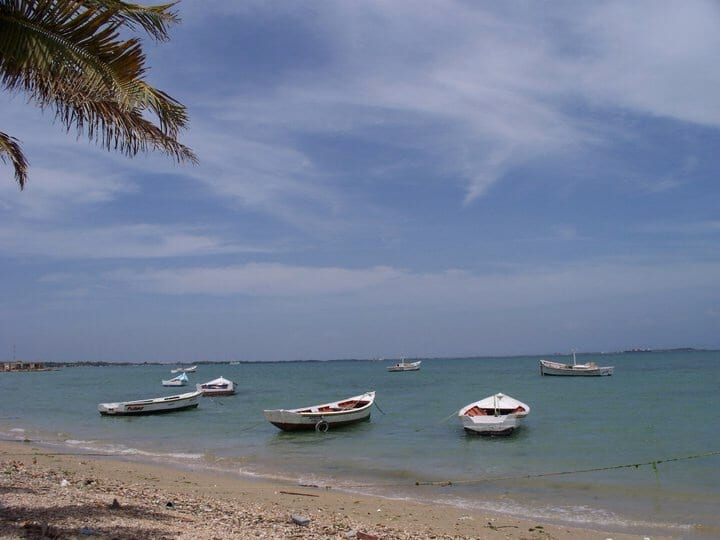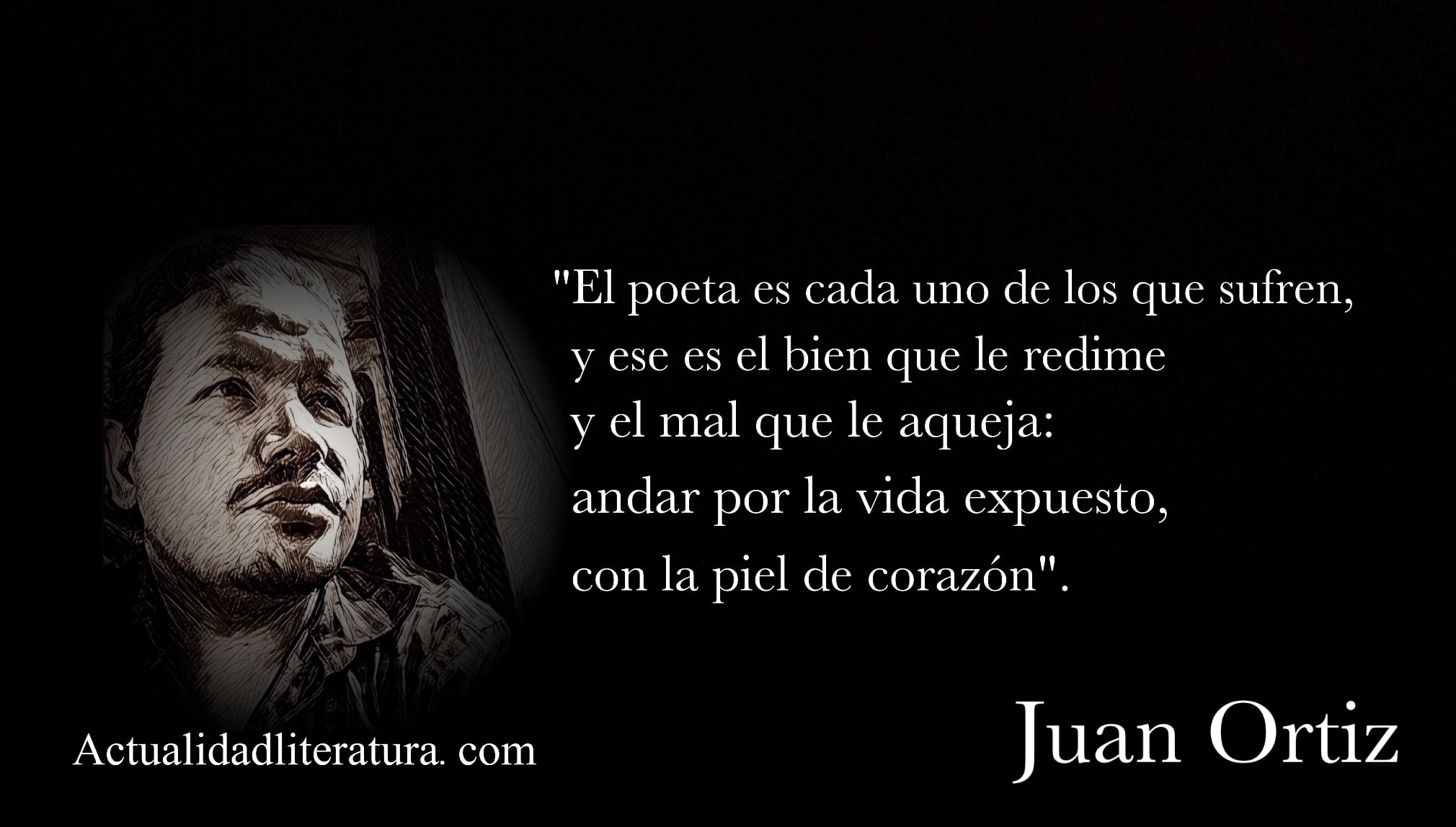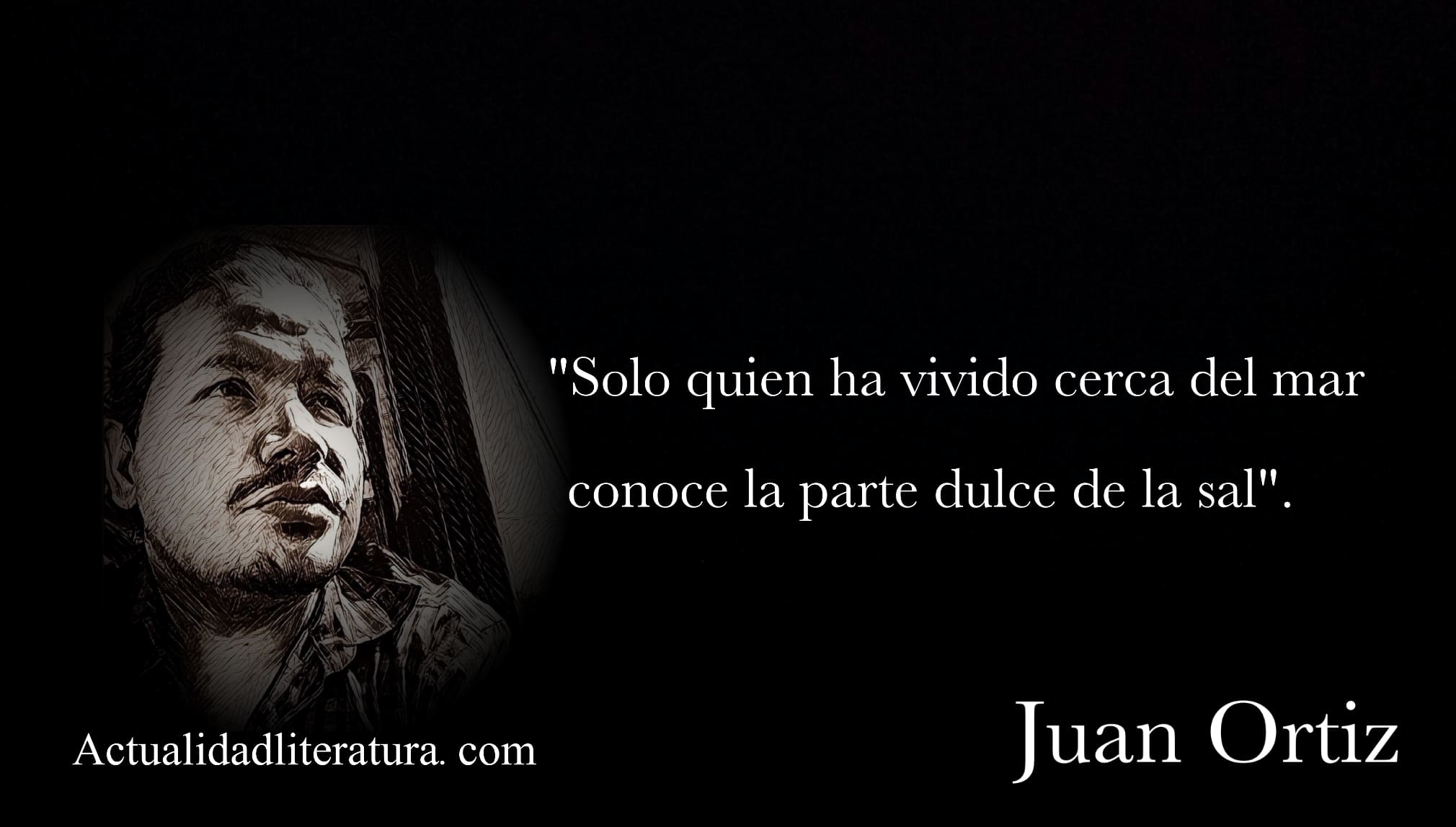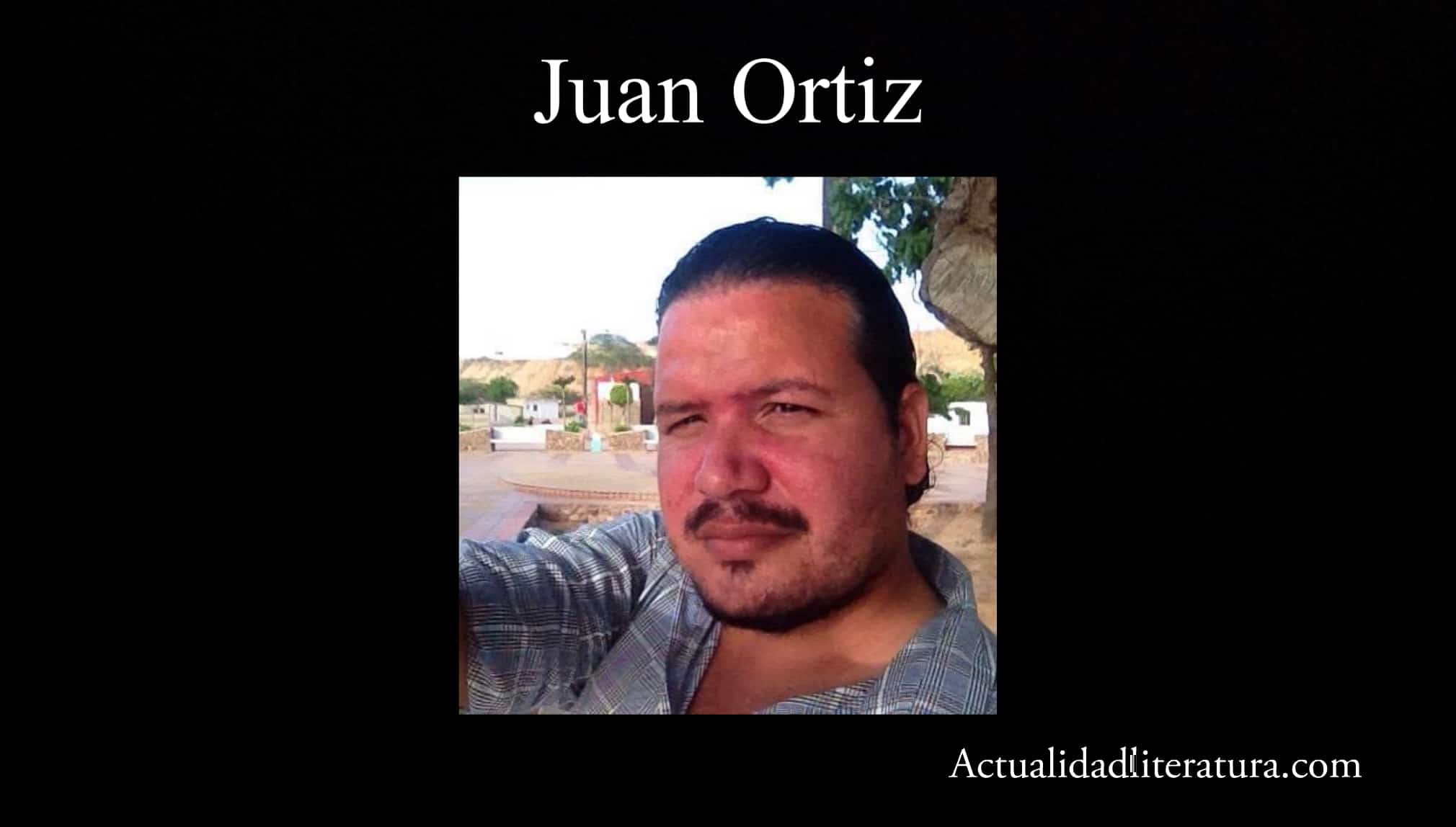
Shores of Punta de Piedras
Salt Anthology is the last poetic work of the Venezuelan writer Juan Ortiz. It is a compilation title that includes all his collections of poems — nine, to date — plus an unpublished book: My poetry, the mistake. In the latter in particular, the author closely touches reflections on life around the events of the pandemic after his hard experience with Covid-19.
During his career, Ortiz has also excelled in other literary genres, such as novels, short stories, and essays.. Today, he works as a copyeditor and editor, in addition to being a content creator for portals such as Lifeder, Actualidad literatura, Writing Tips Oasis and Phrases More Poems.
Salt Anthology, open letter to oblivion (2021)
Salt Anthology, an open letter to oblivion (2021) is Ortiz's most recent title. It is his first international printed publication after his migration to Buenos Aires, Argentina, in 2019. The work came to light in the self-publishing format with the backing of the Letra Grupo Editorial label. With this book, Ortiz seeks to give a space of convergence to his extensive poetic creation, which is not small, since we are talking about about 800 poems.
Editor's note
In the words of its editor, Carlos Caguana: “Salt Anthology it is much more than 10 works in one, it is 10 chapters of the poet's life brought to the lyrics with a beautiful marine language that misses and longs for, that longs for its saline lands, and that sings of love, oblivion, existence, injustice, any possible subject that concerns its transit through these lands , and Ortiz does it from a frank, humane and forceful perspective ”.
Preamble to the book
The work is received with an extensive and complete prologue written by Venezuelan poet Magaly Salazar Sanabria —Corresponding member of the Venezuelan Academy of Language for the State of Nueva Esparta. In her lines, the renowned writer breaks down and deeply analyzes the books one by one contained in the title, issuing accurate criticism from a broad poetic vision.
Among Salazar Sanabria's notes, it stands out: “… this writing keeps an ethical stance among its foundations. Words retain a dignity that sustains them because there is a responsibility with the truth, freedom and honesty of the profession of poet, of writer ”. The poet also comments: "In Juan Ortiz's verses we perceive the human in his feelings, which are painful, and we see it clearly in language, where the force of sadness, helplessness, and sorrow are felt."
Structure of the work
As was said at the beginning, the book is a compilation of ten works that in turn serve as chapters. These are: Salt cayenne (2017) Salt rock (2018) Bed (2018) The house (2018), Of man and other wounds of the world (2018) Evocative (2019) aslyl (2019) Bodies on the Shore (2020) Matria inside (2020) and My poetry, the mistake (2021)
Although each section has its own essence, the presence of marine elements in each of them is remarkable. The salt, the sea, the shells, the fishermen, the mareras, the rancherías… each element of the shore has a role that cannot be ignored. A clear example of this is denoted by the poem written on the back of the book:
"When no longer write about salt »
When I no longer write about the salt
and the sea lands fly from my hands,
hold my pen.
If the ink is not cured,
it won't taste like shore,
his voice will not last at all,
I will have lost the line of the gannets,
the necessary art of the marera,
the prodigious dance of the shoal of sardines.
Chapters
Salt cayenne (2017)
This work represents the formal entrance of the writer to the poetic world. Although he wrote poems since approximately 2005, all those texts remained unpublished until then. The title is written purely in poetic prose and the poems lack a name, they are simply numbered in Roman characters — something that will become common in many of his other books.
Although there is no defined metric, there is a rhythm and an intention in each poem. It is not written for the mere fact of writing, but there is a very felt intention in each verse and stanza. Deep metaphorical games with multiple unknowns can be appreciated that will lead the reader to rethink each poem over and over again.
The sea and the salt, as in every author's book, they have a huge role in this chapter. They go hand in hand with love, but not with conventional love with a pink ending, but full of passion and forgetfulness.
Poem number "XXVI"
Keep me there
in the graveyard of pearly shells,
where the questions of a thousand bodies sleep
and the answers don't visit.
We were touched by the muteness of the coral,
a pearl sun on the ledge
and the shelter of some nets that await the task in the bower.
I also look for the fissure in the blizzard,
the gap that unites everything,
the link that connects the spaces,
the broken trails in the cove,
until I get tired and that you appear when I no longer expect you.
Salt rock (2018)
In this second chapter, the salt persists, the complicated love, the metaphors, the images, the sea. The woman becomes a refuge in the solitude, but even being together, one does not stop being alone. There is a longing full of prohibitions between the verses, a truncated correspondence that seeks the utopian space of the stanzas to happen.
However, despite the remarkable passion that can be felt, oblivion does not stop presenting itself as a sentence, as the reality that awaits everything that bears a name. Prose is still present as poetic language, but the rhythm and intentionality is not left at each point, each word.
Poem "X"
The detail is that I will not insist.
I will write,
as usual,
of the night and its birds of silences,
of how they migrated to my door
and cluttered my windows.
I will write,
yes,
and the conches will evoke typhoons on their pearly tongues,
the marine roads will remove your steps from their stones
and the amber of your name will be washed away from the waves,
kept on the reefs.
I will write and it will seem that I remember you,
but actually,
This is how I best forget.
The house I was in, the town I lived in (2018)
In this case, the mother's house and the town —Punta de Piedras— are the protagonists. The prose is still in common language, and this It is adorned with traditional images of that shore that saw the poet grow up and of those walls that sheltered his childhood and adolescence. The author places special emphasis on the characters of his hometown, as well as on the popular beliefs that enriched his walk through those places of salt.
It highlights the brevity of the verses and stanzas and how they intertwine like a story, from beginning to end. The house, itself, is a living entity that contemplates those who inhabit it, that he feels, that he knows, and that he even decides who lives it and who does not.
Poem "X "
Outside the rain wets everything,
push the night into my room.
Something tells me,
I think,
or maybe I want you to tell me something.
To know what your voice transits,
I sure do water
and complete on this side
what needs to be washed inside.
Bed (2018)
Of Juan Ortiz's books, this is, perhaps, the most erotic of all. Sensuality is present in each verse in an intense way, not in vain the title of the work. As in the previous section, the brevity of the poems is kept, and in their tiny spaces a whole reality, a world, an encounter unfolds.
Some may perceive this short collection of poems as a very short novel, where each poem narrates the chapters of a fleeting but intense love —Which could have been a life unto itself. Of course, there is no shortage of word games, suggestive images.
Poem "XXIV"
The bed is made
to become horizon.
You go there
threatens and it gets dark how late life is
until the world ends.
Of man and other wounds of the world (2018)
This chapter stands out for the rigorousness of the poet's language. It is, in itself, a catharsis, a complaint against the species and its destructive passage through the planet. However, there are brief attempts at mediation in which the intervention of the divine presence is requested to see if the mess of existence is accommodated a bit.
Prose is present in the discursive expression of each poem. The images presented are harsh, they are a reflection of the harsh reality of what man calls history.
Fragment of the poem "XIII"
Everything is about a burning,
of the fiery path that runs through our blood,
that presses the pearly jaws until the foundations grind to polish us waist down,
to cleanse ourselves body to body,
leaving us so translucent,
so erased from guilt that we become mirrors,
we look at each other, we repeat ourselves
and more October come to populate the winters.
This lineage is an open mouth of infinite changes;
go chew, that's what you've come to,
Go shape the air
weaves the light nets that sculpt the passing Olympians of so many egos that rise up.
I did not want to be the mortar of the days in this dream,
how much I would have paid in coin of honesty - the most expensive - to be fine grass of a quiet meadow and leave soon,
but I'm cool
I have come to tear the seven airs of the world together with my race.
Evocative (2019)
In this book, while the prose discourse persists, as does the salt and the sea, there is an emphasis on the playful aspect. The evocative - as Ortiz calls them - come to poeticize each of the elements of their land, from Margarita Island. From the marine elements to the terrestrial ones, the customs and characters.

Quote by Juan Ortiz
To achieve this, the author uses a brief but concise description of what is poetized. Each evocative closes with the name of the object, thing or being to which it refers, so we could speak of a reverse poem that invites the listener to guess what is being talked about before the last verse reveals it.
Poem "XV"
His habit covers
certainties of fright,
the fish knows
and when kissing him
loses his voice again.
Seagull
aslyl (2019)
This is a work of farewells, as it is written prior to the poet's departure from the country. Nostalgia is on the surface, love for the land, for the marine space that will not be seen until it is not known when. As in the previous chapters, the prose is the habitual thing, like the Roman numeration instead of titles.
The language of passion does not cease to be present, and is intensely combined with regionalist and costumbrista cadres. If we talk about regrets in Ortiz's work, this title contains one of the most significant: that caused by migration.
Poem "XLII"
I've been looking to leave as it should.
Leaving is an art that,
to be done well, it amazes.
To disappear as it should have arrived,
it must have been,
at least a bird of light.
To leave like this, all of a sudden,
like an oblivion on the branch,
I have a hard time with it.
The door doesn't work for me
or the window, nowhere do I move away,
wherever she comes out she appears naked
like an absence that weighs
inviting me to retrace the litter in the yard,
and I stay there, in the middle of something,
yellow,
like a pardon in the face of death.
Bodies on the Shore (2020)
This chapter differs from the aforementioned in two key aspects: the poems have a non-numerical title and the author gets a little closer to traditional metrics and rhymes. However, prose still holds a predominant place.
The subtitle “Poems of not fitting anywhere” alludes to the fact that this book collects a large part of the author's scattered texts since his beginnings as a poet, and that they did not “fit” within the other poems due to their diverse themes. However, when delving into the lines of this title The clear essence of Ortiz and the traces left by his people and his childhood in his lyrics continues to be perceived.
Poem "If I spoke with the angels"
If I spoke to angels like my father does,
I would have been poet enough already,
I would have jumped the peaks behind the eyes
and done the passes with the beast that we are inside.
If I knew a little of the languages of the transcended,
my skin would be too short,
Blue
to say something,
And pierce through dense metals
like the voice of God when it calls to the hearts of men.
And it's that I'm still dark
listening to the April that jumps in my vein,
maybe they are the gannets that I once had in the name,
or the mark of the poet with whom I was deeply wounded, reminding me of her verse of naked breasts and perennial waters;
I do not know,
But if it gets dark, I'm sure I'll stay the same
and the sun will look for me later to settle accounts
and repeat myself in a shadow that tells well what happens behind the chest;
reaffirm the furrows of time,
reshape the wood in the ribs,
the green in the middle of the liver,
the common in the geometry of life.
If only I would talk to angels like my father does,
but there is still a letter and a path,
leave skin exposed
and delve deeper into the dark with a firm, yellow fist,
with a sun for each cross in the language of men.
Matria inside (2020)
This text is one of the crudest of Ortiz, only comparable with Of man and other wounds of the world. En Matria inside a portrait is made of the Venezuela from which he had to leave in search of a better future for his family, but that, no matter how hard he tries, he does not abandon him.

Quote by Juan Ortiz
The Roman numeration is retaken because each poem is a minichapter where the prose returns prevailing. It speaks of the daily life of a reality known by the whole world, but assumed by few; hunger and laziness, abandonment, demagoguery and its dark paths are drawn, and how the only way out is to cross borders where providence allows it.
Poem "XXII"
Innumerable jars to marinate the absences,
old images to remember what is gone,
to lock oneself inside in a necessary, planned oblivion,
go out sporadically to see if everything happened,
and repeat the process if it is still darker outside.
Many of us could not follow the formula,
So we became parrots, we sewed wings from the blood
and we left in scattered flights to see if it dawned beyond the fence.
My poetry, the mistake (2021)
This is the closing of the book, and the only unpublished work present in the entire anthology. The text features poems of very varied themes and Ortiz shows off his handling in the various poetic forms. Then, Although his predilection for prose is notorious, he handles most of the traditional poetic forms of Castilian in a very good way., like the tenth spinel, the sonnet or the quatrains.
My poetry, the mistake arises after a very difficult chapter in the author's life: surviving Covid-19 together with his family in a foreign country and from home. The experiences lived during the contagion were not at all pleasant, and there are two poems that express it in a forceful way.
The poet also sings heartfelt friends who left. However, not everything is tragedy in this section, life, friendship and love are also celebrated, especially the one he feels for his daughter Julia Elena.
Poem "We were four cracks"
In that house,
we were four cracks;
there were breaks in the names,
in the hugs,
every quarter was a country in dictatorship,
The steps had to be taken care of very well so as not to go into war.
This is how life had made us:
hard, like the bread of the days;
dry, like tap water;
resistant to affection,
masters of silence.
However, despite the strictness of the spaces,
to the strong territorial limits,
Each cracked edge matched the next perfectly
and when they are all gathered,
at the table, in front of the dish of the day,
the fissures were closed,
and we were, really, a family.
About the author, Juan Ortiz

Juan Ortiz
Birth and first studies
The writer Juan Manuel Ortiz was born on December 5, 1983 in the town of Punta de Piedras, Margarita Island, Nueva Esparta state, Venezuela. He is the son of the poet Carlos Cedeño and Gloria Ortiz. In that town on the shores of the Caribbean Sea he studied the initial stage in the Tío Conejo preschool, basic education at the Tubores School and He graduated with a Bachelor of Science from the La Salle Foundation (2000).
University studies
Subsequently, study Degree in computer science at the Universidad de Oriente Nucleo Nueva Esparta. However, after three years, he requested a career change to Integral Education, a decision that would mark his path for life. Five years later was received with a mention in Language and Literature (2008). During that period, he also developed the profession of academic guitarist, which would later serve him enormously in his career.
Teaching work and first publications
He barely got his degree was incorporated by Unimar (University of Margarita) and began his career as a university professor. There he worked as a teacher of literature, history and arts, from 2009 to 2015. Later, Unearte (University of the Arts) was assimilated, where he taught harmony classes applied to the guitar and instrumental performance. In that period he also collaborated as a columnist for the newspaper Sun of Margarita, where he had the space "Transeúnte" and begins his "literary awakening" with his first publication: In the mouth of the alligators (novel, 2017).
Day by day, write reviews for portals Actualidad Literatura, Lifeguard, Writing Tips Oasis y Phrases plus poems and works as a proofreader and editor.
Works by Juan Ortiz
- In the mouth of the alligators (novel, 2017)
- Salt Cayenne (2017)
- Salt rock (2018)
- Bed (2018)
- The house where I was the town where I lived (2018)
- Of man and other wounds of the world (2018)
- Evocative (2018)
- Sacred shore (poetic anthology, 2018)
- Passerby (compilation of stories from the column of the Margarita's Sun, 2018)
- aslyl (2019)
- Stories from the scream (Horror stories, 2020)
- Bodies on the shore (2020)
- My poetry, the mistake (2021)
- Salt Anthology (2021)

Definitely a beautiful book written with the soul of this poet, who with each poem took me to the longing to live in the salt.